Health Info, Policy Updates
8.24.24 Voter Empowerment Alert
August 26, 2024
The FAQ-style toolkit to help you feel confident leading up to Election Day.
Health Program, Your Health Unlocked Episodes
Publication Date: May 10, 2023
By: NWHN Staff

After years of working as a midwife in her community and seeing countless Native American women struggle to navigate Western healthcare systems, Nicolle Gonzales knew there had to be a better way to center the needs of the women and families she cared for.
CDC data indicates that pregnant indigenous women living in rural areas are at a substantially elevated risk of maternal death or serious complications in childbirth compared with non-Hispanic white or urban women.
Some of the barriers to care that Indigenous women face include limited access to local and culturally centered services. The chronic underfunding of the Indian Health Service (IHS) has only worsened this issue, with many IHS facilities not providing obstetric care. A significant underrepresentation of Indigenous people in the childbirth care workforce and the limited number of voices in policy discussions on maternal health further contribute to the Indigenous maternal health crisis.
In 2015, Nicolle founded the non-profit organization Changing Woman Initiative, a Native American-led women’s health collective focused on renewing cultural birth knowledge to empower and reclaim the sovereignty of Indigenous women’s medicine. In this episode of the Your Health Unlocked Podcast, she shares their incredible work to overcome existing barriers to care and promote reproductive justice.
Nicolle is Navajo, and her clan is Tl’aashchi’I, Red Bottom clan, born for Tachii’nii, Red Running into the Water clan. Hashk’aa Hadzohi, Yucca fruit-strung-out-in-a line clan, and Naasht’ezhi Dine’e, Zuni clan. Nicolle grew up on and off the Navajo reservation near Farmington, New Mexico, where traditional healing practices were always a part of her life.
She received her bachelor’s degree in nursing and a master’s in nurse-midwifery from the University of New Mexico. Her inspiration to become a midwife stemmed from her experiences as a nurse working with Native American communities.
During her studies, it became apparent that Native American traditional healing practices and philosophies about “health” and “wellness” were not supported as part of women’s health or birth. These experiences informed her efforts to support indigenous birthing traditions, mothering, and culture so that Native American people can access the birthing care they need while being supported by their own indigenous midwives.
Her work in reclaiming indigenous midwifery and birth has helped to inform reproductive birth justice policy changes and has shone a light on the current conditions in which Native American birthing families have to navigate. Her work to cultivate a collective resistance to the existing health inequities regarding Native American birthing options and women’s health led her to create the Changing Woman Initiative, a non-profit Native American Women-led health organization. They aim to renew cultural birth knowledge to empower and reclaim indigenous sovereignty of women’s medicine and lifeway teachings.
Nicolle is a published author and writes about traditional birthing practices while incorporating Dine’e philosophies on personhood and indigenous feminism. She is highly regarded as an innovator, inspirational speaker, and has served on two birth center boards in New Mexico. She has presented at many conferences to speak about indigenous women’s rights issues, health, birth, well-being, and traditional birthing.
The Health Equity & Access Leadership Training Hub (hereinafter The HEALTH Program) is the newly established grant program of The NWHN. The HEALTH Program aims to shift paradigms and shape policies from grassroots-to-grasstops by helping build the capacity of organizations and bolstering their engagement in high-impact legislative advocacy efforts. The HEALTH Program’s main areas of focus include (1) addressing health inequities that disproportionately impact historically and systematically marginalized communities, (2) expanding healthcare access through legislative advocacy, and (3) improving health outcomes for women-in all their diversities-across the lifespan.
To find out more about the Changing Woman Initiative or to see how to donate to their organization, you can visit their website for further information.
You can follow The Changing Woman Initiative on Facebook and on Twitter.
Read this article to find out more about the Albuquerque women’s hospital that separated some Native American women from their newly born babies, as the result of a practice designed to stop the spread of COVID-19. Health care ethicists raised concerns about the bias, trust, and informed patient consent concerning these practices.
You can read the 2022 ‘White House Blueprint for Addressing the Maternal Health Crisis’ here.
The action plan to improve maternal health in America, created by the U.S. Department of Health & Human Services, can be read here.
Discover more about the United Nations treaty ‘The Right to Health.’
Learn how The Hyde Amendment affects funding for abortions.
Some Terms and Linked Definitions

